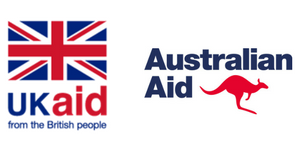Over one billion people around the world, including more than 230 million women and girls in the Commonwealth, lack official proof of identity. Recognising that mobile technology and mobile network operators (MNOs) are well-positioned to tackle this issue, we explored the identity landscape in Malawi, Sri Lanka, Uganda, and Zambia – four countries at distinct stages on their journey towards achieving full national identity coverage; and with contrasting rates of mobile ownership and usage amongst men and women.
Although each country has its own unique identity context, the research also identified a range of insights – seen across the four countries – that are important considerations in developing, rolling-out, and embedding digital identity solutions. We’ve highlighted these below.
Identity has significant benefits for countries, businesses, and individuals
Effective identity solutions can drive the development of better policies, improve service delivery, enable business growth – including the development of a wider identity-linked ecosystem; and support the lives and livelihoods of every individual in a country. However, these important benefits can only be realised if they are understood. In several of the countries studied, the benefits of identity solutions were not clear – and this was a significant factor in the low uptake of identity assets.
Similarly, identity solutions should enable opportunities and not sit in isolation from wider policies and processes. One consistent issue across all of the countries was how small business owners without identity documentation are particularly excluded from formal business registration – and unable to access insurance and subsidies. This is an area where identity can deliver benefits – and where MNOs can play a role in developing identity solutions to meet the needs of the informal economy.
Identity solutions must be inclusive – particularly for women and girls
The full benefits of identity can only be achieved if identity solutions can be accessed by all. Identity inequity can be intergenerational, particularly when considering the importance of identity for inheritance and land ownership. Digital identity solutions must also be accessible, requiring efforts to improve digital literacy; and to eliminate the gender disparity in access and usage of technology.
The importance of inclusive identity is being recognised. In Uganda, allowing either parent to obtain a birth certificate for a child has increased birth registration, whilst in Malawi strong progress has been made in female enrolment and usage of the country’s National Identity Card. With their own identity, women have greater independence – which, in turn, has powerful multiplier effects, particularly for marginalised groups. As discussed in the Sri Lanka report, MNOs could develop digital identity solutions that enable excluded war widows to participate in daily life.
Digital is an essential foundation to delivering identity at scale
Each of the countries studied has recognised the importance of digital identity solutions, and are digitising key identity components – including developing integrated and canonical identity registers. Sri Lanka, in particular, is making strong progress in this area, whilst the Government of Uganda is aiming to develop a central citizen database as a foundation for eGovernment services.
Digital plays a key role in all stages of the identity journey. Digitisation of the registration process ensures that all citizens are enrolled, and there is a particular opportunity in Zambia for MNOs to engage hard-to-reach populations. Digital identity solutions also enable the delivery of identity at scale – particularly through leveraging the millions of mobile handsets across the four countries. Digital can also drive wider transformation. In Uganda, a country with one of the highest numbers of female entrepreneurs, many small business owners avoid registering their business due to the complex registration process. A streamlined digital business identity solution could tackle this issue.
Governments are key actors in enabling digital identity solutions
Across the four countries, government has played a critical role in driving identity solutions. The Government of Zambia has developed a National Strategic Action Plan for Reforming and Improving Civil Registration and Vital Statistics, whilst the governments of Malawi and Uganda have made impressive progress in increasing birth registration rates. Voter registration has also proven to be an effective vehicle for identity registration in Uganda and Zambia.
Government has a unique ability to convene the private sector, with public-private partnerships essential to delivering digital identity solutions. MNOs are useful actors in such partnerships, having built transformational services at scale. Governments must also shape an enabling environment, bounded by privacy regulations. They can also build the foundations of digital identity solutions, highlighted by the Government of Malawi’s development of a Universal Beneficiaries Register to deliver social security benefits. Such initiatives also provide a significant opportunity for MNOs to facilitate citizen payments, drawing on their mobile money expertise.
Looking forward
Malawi, Sri Lanka, Uganda, and Zambia have made strong progress in rolling-out identity solutions, and the next few years are likely to prove instrumental in further developing these foundations. Related to this, MNOs, and mobile technology more widely, are likely to play an instrumental role in building, enabling, and amplifying identity solutions and identity-linked initiatives.
This research has also provided a strong foundation to our wider work, and we are exploring several of the above themes in greater depth through in-country end-user research. The opportunities identified by this research have also started to generate thinking around the role of MNOs in delivering digital identity solutions. Over the next year we will be working closely with MNOs, and other stakeholders, to develop these opportunities further in order to create short- and long-term value for citizens, governments, and other development partners.
The Commonwealth Digital Identity Initiative is funded by the UK Department for International Development (DFID) and the Australian Government (DFAT), and is supported by the GSMA, its members, World Bank and Caribou Digital

The post Digital identity opportunities in Malawi, Sri Lanka, Uganda, and Zambia appeared first on Mobile for Development.